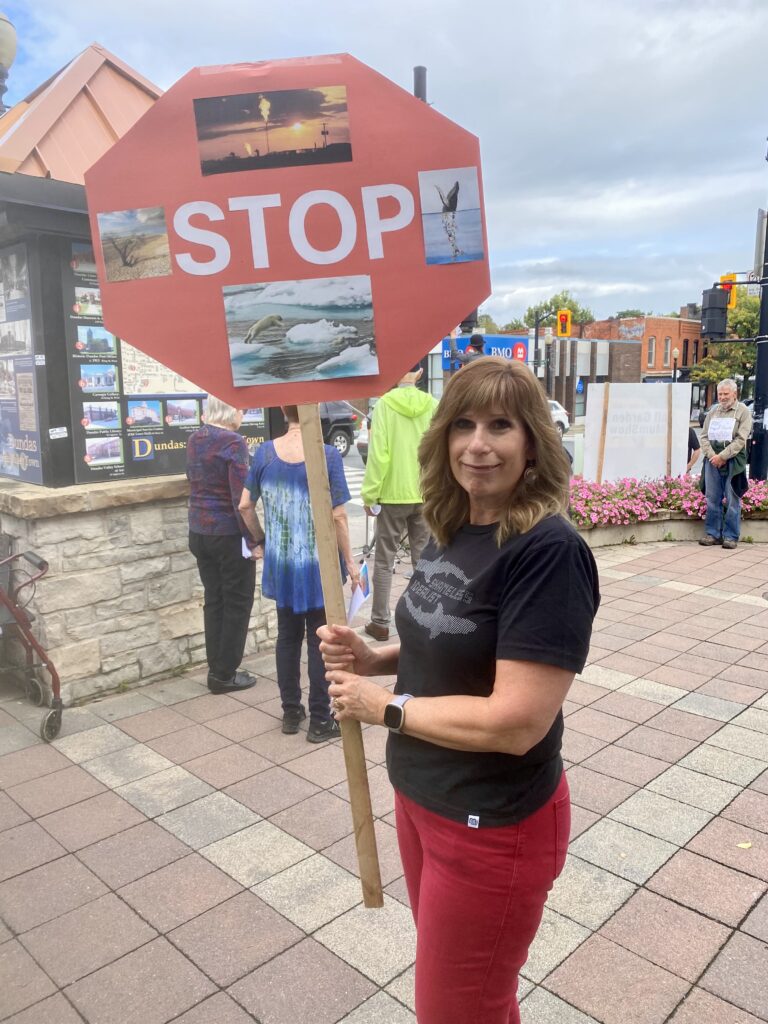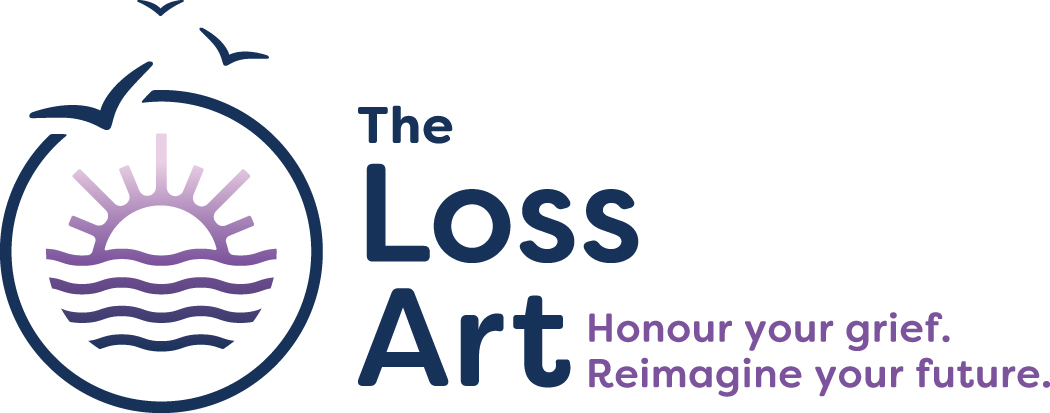On October 1, I acknowledged National Seniors Day by joining about 40 dedicated elders and youth on a climate action in Dundas, Ontario. It was one of more than 70 similar actions by seniors across Canada.

and give you a sense of community and hope.
We gathered at an intersection marked by a “big bank” on each corner. We carried signs, heard from spokespeople armed with scientific and Indigenous knowledge and even performed songs to protest the big banks’ investment in fossil fuels. The RBC (Royal Bank) got the most attention.
Here’s why: The bank contributed more than US $28 billion in 2023 alone and an astonishing US $256 billion since the Paris Agreement in 2016. RBC’s commitment to fossil fuel financing remains in stark contrast with the image the bank portrays to Canadians. RBC is now the 7th dirtiest bank in the world. Disgusting. Watch this short video to learn more.
Like climate change, climate grief is real
For me, climate action is a direct response to my feelings of climate, or ecological, grief. Climate grief is defined as the grief felt in relation to experienced or anticipated ecological losses, including the loss of species, ecosystems and meaningful landscapes due to acute or chronic environmental change. (Cunsolo & Ellis, 2018)
Most people associate grief and bereavement as experiences related to the death of a loved one. If you love this planet, it makes sense you’d grieve for past, current and future losses due to climate disruption. People impacted directly by climate change, and others who are working on climate issues as scientists or activists, often use grief-related language to describe their feelings.
If you experience any of the following feelings, you’re familiar with climate grief:
- Sad, angry, despairing, or confused when you learn about:
- The destruction of the Amazon Rainforest
- Bleaching of the Great Barrier Reef
- Mass extinction of species worldwide
- A sense of loss, melancholy, or helpless in response to:
- Changes to your local environment – the loss of green spaces
- Disappearance of familiar plants and animals or the increase in forest fires or smoke
- Hopeless or scared about the future of the planet and ecological system
- Hopeless or fearful for the future your children, your family or all future generations might inherit
Take action to help yourself, people and causes you care about
You may find a sense or reward, community and support by joining an organized action in memory of a loved one. Joining a Walk for Alzheimer’s to honour a loved one who died from the disease is a good example. Taking action for the planet you love and want to help is a healthy and productive way to work through your grief and to maintain a sense of hope.
